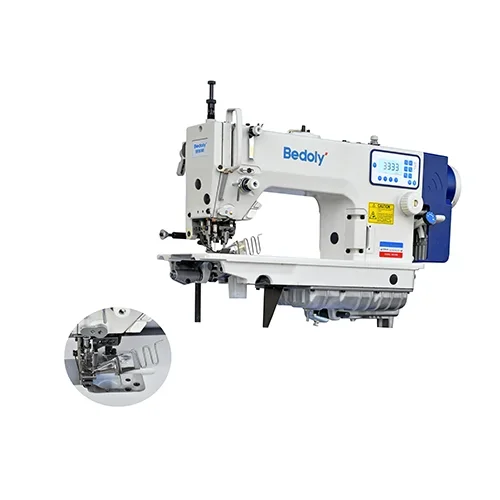In the fast-paced textile industry, the use of side cutting computer sewing machines has revolutionized the way garments and fabrics are produced. These advanced machines offer numerous advantages, including increased efficiency and productivity, enhanced precision and quality, cost savings and waste reduction, versatility and adaptability, improved ergonomics and operator comfort, and environmental sustainability. This article explores these advantages in detail, highlighting the significant impact side cutting computer sewing machines have on the textile industry.
Increased Efficiency and Productivity
Side cutting computer sewing machines are equipped with advanced automation features that streamline the sewing process. These machines can automatically cut and sew fabric, eliminating the need for manual cutting and reducing production time. Additionally, their high-speed stitching capabilities enable faster completion of garments, resulting in increased productivity and shorter lead times.
Enhanced Precision and Quality
The precision offered by side cutting computer sewing machines is unparalleled. These machines are programmed to execute intricate stitching patterns with utmost accuracy, ensuring consistent and flawless results. The advanced technology also minimizes the risk of human error, resulting in higher quality finished products that meet or exceed customer expectations.

Cost Savings and Waste Reduction
By automating the cutting process, side cutting computer sewing machines significantly reduce material waste. The precise cutting mechanism ensures minimal fabric is wasted, leading to cost savings for manufacturers. Moreover, the automation features eliminate the need for additional labor, reducing labor costs and increasing overall profitability.
Versatility and Adaptability
Side cutting computer sewing machines are designed to handle a wide range of fabrics and garment types. They can easily switch between different sewing patterns and stitch lengths, making them highly versatile and adaptable to various production requirements. This flexibility allows textile manufacturers to cater to diverse customer demands and expand their product offerings.

Improved Ergonomics and Operator Comfort
Traditional sewing machines often require repetitive and strenuous manual labor, leading to operator fatigue and discomfort. Side cutting computer sewing machines, on the other hand, incorporate ergonomic designs that prioritize operator comfort. These machines feature adjustable height settings, easy-to-use controls, and reduced noise levels, ensuring a comfortable working environment for operators.
Environmental Sustainability
The textile industry is notorious for its environmental impact, particularly in terms of waste generation and energy consumption. Side cutting computer sewing machines contribute to environmental sustainability by reducing material waste and energy consumption. The precise cutting mechanism minimizes fabric scraps, while the automation features optimize energy usage. This eco-friendly approach aligns with the growing demand for sustainable practices in the textile industry.

Conclusion
The advantages offered by side cutting computer sewing machines have transformed the textile industry, enabling manufacturers to achieve higher efficiency, precision, and quality while reducing costs and waste. These machines have revolutionized the way garments and fabrics are produced, providing versatility, adaptability, and improved ergonomics for operators. Furthermore, their contribution to environmental sustainability makes them an essential tool for textile manufacturers looking to embrace eco-friendly practices. As technology continues to advance, side cutting computer sewing machines will undoubtedly play a crucial role in shaping the future of the textile industry.
Exploring the Versatility of Ordinary Computer Sewing Machines


